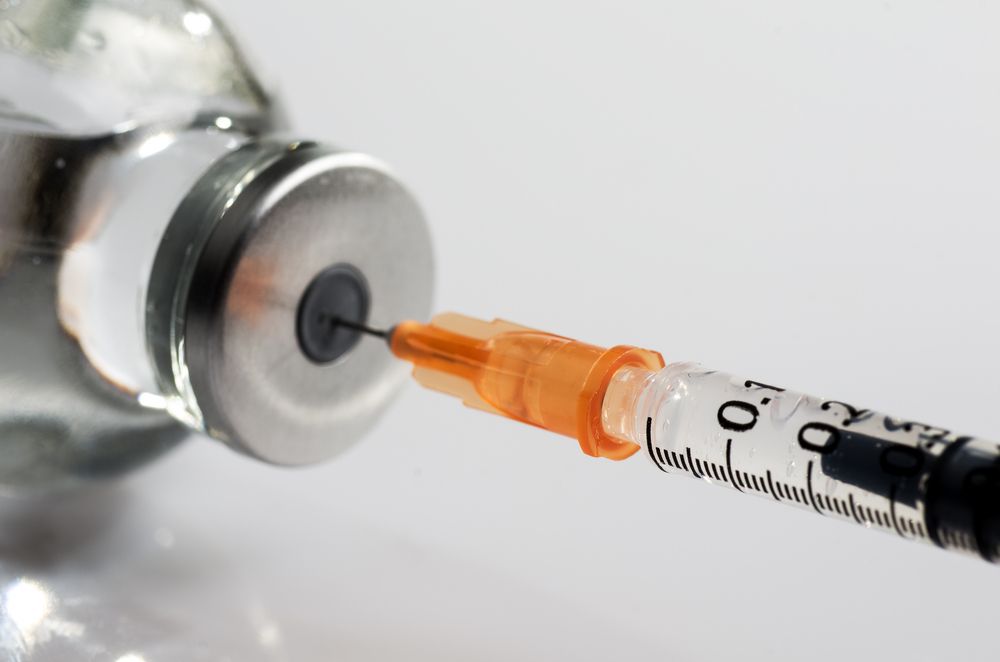PRP vs. Cortisone Shot: Which Is Better?
Sports Medicine

A PRP injection or a cortisone shot provides pain relief. But which one is better for you?
According to the Department of Health and Human Services, 54.4 million adults in the U.S. suffer from joint pain caused by arthritis. If you are one of those individuals, you are acutely aware of how the pain interferes with your daily activities, and you want immediate relief.
You can get that relief with two viable options to manage your pain with a single shot. Currently, platelet-rich plasma (PRP) and cortisone injections rank as the two most commonly used treatments for joint pain associated with arthritis, bursitis, and tendonitis. So, what are the advantages and disadvantages of a PRP versus a cortisone shot? Read on to find out.
What are PRP injections?
PRP injections are a type of regenerative medicine that harnesses the body’s own natural healing powers. Within your blood are growth-promoting platelets, which help your body heal from an injury or inflammation.
To retrieve these vital cells, your doctor draws your blood and then puts it into a centrifuge that extracts the platelets. This liquid concentration of platelet-rich plasma is injected into the site of the pain and inflammation, regenerating damaged cells in the tissue.
What are cortisone shots?
Like PRP injections, cortisone shots treat pain and inflammation of the joints, muscles, and tissues. Cortisone shots are a form of a corticosteroid, which is a synthetic version of a naturally occurring hormone in the body known as cortisol.
Cortisol fights inflammation and other adverse immune responses in the body. A synthetic corticosteroid has the same powers, but in a stronger form, making it an effective pain and inflammation reducer.
PRP injection vs. cortisone shot: Which is better for you?
Both PRP and cortisone injections have been widely used for many years with little to no negative side effects. Both are injected into the site of the pain. Your doctor will determine which one is better for your pain management, but here are a few pros and cons to consider before taking either treatment.
Cortisone shot
Pros:
- Provides immediate pain relief, enabling you to undergo physical therapy safely and without discomfort. With less pain, your therapy will be easier and more successful.
- Cheaper than PRP injections, and more likely to be covered by insurance.
Cons:
- Cortisone can mask the pain but it does not heal the damaged tissue.
- Has long-term side effects, such as deterioration of the tissue. Cortisone shots are limited to a certain number per year.
PRP injections
Pros:
- PRP not only reduces pain and inflammation but can rebuild damaged tissue.
- Since PRP uses your body’s own cells, you stand less chance of an adverse immune system response. You may only feel soreness at the injection site.
Cons:
- It can take several months before you experience significant pain relief from a PRP injection.
- More costly than cortisone shots. Check with your insurance carrier to see if PRP injections are covered.
Whichever one you and your doctor choose, be assured both have proven safe and effective in managing pain. It may depend on the severity of your pain and how quickly you want relief.
PRP vs. Cortisone Shot: A Clinical Study
A study in the Journal of Orthopaedic Surgery and Research details which treatment provides better long-term pain reduction. Forty patients were split into two groups, with 20 receiving a cortisone shot and the other 20 getting a PRP injection for arthritis pain.
Both groups reported minimal side effects. Those receiving cortisone shots noted rapid pain relief. However, the pain resumed after 15 weeks. Meanwhile, the PRP cohort said pain improvement continued up to 30 weeks, with a slight uptick after a year.
This study tends to support the case for PRP vs. cortisone shots for better long-term pain relief and healing. But if getting instant pain relief is your goal, a cortisone shot is quicker.
Joint pain got you down? Come see a physical therapist
At All Sports Physical Therapy, we employ a variety of methods to cure your joint pain, including cortisone or PRP shots. We’ll take into account your health history, type of pain, and your treatment preferences. Contact us today for a consultation.



